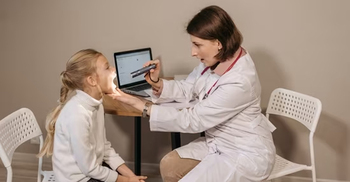How to recognise and treat ectopic pregnancy before it becomes life-threatening

Pregnancy is a very exciting and interesting phase of a woman’s life. It promises new beginnings and happiness, yet comes with a little bit of anxiety. Unfortunately, for some women, this phase is worrisome when they develop an aberration like ectopic pregnancy. One in 100 pregnancies is ectopic and needs urgent medical intervention. If this is ignored by patients or doctors and not treated on time, it can become fatal.
An ectopic pregnancy can happen anywhere in the body, from the ovary to the fallopian tube to the cervix. However, 95 per cent of ectopic pregnancies take place in the fallopian tube. The possibility of rupture and haemorrhage always remains because none of these anatomic sites can support placental attachment or a developing embryo. A ruptured ectopic pregnancy is a real medical emergency. It accounts for 10 to 15 per cent of all maternal deaths and is the main cause of maternal mortality in the first trimester.
A pregnancy that develops outside the uterus is referred to as an ectopic pregnancy. This occurs when a fertilised egg implant is in an unsuitable structure and cannot support its growth. A tubal pregnancy is a term used to describe an ectopic pregnancy that takes place in the fallopian tube. Occasionally, a pregnancy may develop on an ovary or in the abdominal cavity.
Read More: Awareness of Anemia in Pregnancy
The most frequent type of ectopic pregnancy, known as a tubal pregnancy, occurs when a fertilised egg gets stuck on its route to the uterus frequently because the fallopian tube is inflamed or malformed. Incorrect development of the fertilised egg or hormonal imbalances could also be the cause.
SYMPTOMS OF ECTOPIC PREGNANCY
An ectopic pregnancy may initially exhibit similar symptoms as a regular pregnancy, such as a missed period, sensitive breasts or an upset stomach. Other indications could be lower back pain, abnormal vaginal bleeding, mild pain in the abdomen or pelvis and cramps. It could be difficult to tell at this point whether a woman is going through a conventional pregnancy or an ectopic pregnancy. As soon as they experience symptoms like abnormal bleeding and pelvic pain, they should inform their gynaecologist regarding the same; if delayed, the fallopian tube may rupture. The danger is that when this happens, it produces significant internal bleeding that is not noticeable from the outside. If this situation is not diagnosed in time, the patient may experience shock, dizziness and severe pain.
WHAT CAUSES COMPLICATIONS?
● If a woman has had an ectopic pregnancy in the past, then she is more likely to experience another pregnancy of this kind.
Sexually transmitted diseases like gonorrhoea and chlamydia can cause inflammation in the fallopian tubes and other surrounding organs. This raises the risk of an ectopic pregnancy.
● Smoking cigarettes right before conception increases the risk of an ectopic pregnancy.
● If a patient is 35 or older, chances of an aberration are high.
● A woman who has had pelvic or abdominal surgery is more prone to ectopic pregnancy.
● Have experienced endometriosis, a pelvic inflammatory illness, or an STD.
HOW CAN SURGERY HELP
If diagnosed early, there are numerous therapies that can be performed. If the pregnancy is tubal, surgery can be avoided by employing conservative medical techniques to save the tube. If the pregnancy is unruptured and the baby’s heartbeat has not yet formed, the doctor might choose the medical approach, which involves giving an injection, keeping the patient in the hospital, and allowing them to return home without any health risks. A patient might also be treated laparoscopically if the foetus has not ruptured but the heartbeat can still be felt (a small incision is made, and the baby is scooped out). One would need to have surgery if the pregnancy is ruptured.
HOW CAN WE ENSURE EARLY DETECTION?
Once a woman is pregnant, she should follow her doctor’s advice and get an ultrasound done to make sure the baby is in the uterus. It’s not always simple to spot pregnancy in the tube. You might notice it as it develops. Watch out for sharp pain, light vaginal bleeding and fainting fits during the first pregnancy. If you are past five weeks and your doctor can’t detect pregnancy in the uterus, they need to continue ruling out an ectopic pregnancy. There’s also a quantitative hCG test, which measures the exact level of hCG in the blood. These tend to be lower overall in an ectopic pregnancy. Observe them for a few days to get definitive results.
Source: The Indian Express







